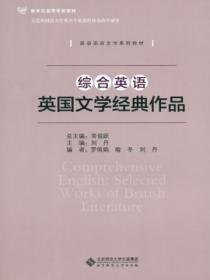Text C Independent Strategies
Jill Marie Warner
When I get stuck on a word in a book,
There are lots of things I can do.
I can do them all, please, by myself;
I don’t need help from you.
I can look at the picture to get a hint.
Or think what the story’s about.
I can “get my mouth ready”to say the first letter.
A kind of “sounding out”.
I can chop up the words into smaller parts,
Like on or ing or ly,
Or find smaller words in compound words
Like raincoat and bumblebee.
I can think of a word that makes sense in that place,
Guess or say “blank”and read on
Until the sentence has reached its end,
Then go back and try these on:
“Does it make sense?”
“Can we say it that way?”
“Does it look right to me?”
Chances are the right word will pop out like the sun
In my own mind, can’t you see?
If I’ve thought of and tried out most of these things
And I still do not know what to do,
Then I may turn around and ask
For some help to get me through.
1.Discuss the concept of Independent Strategies in learning language and literature in groups, and make a presentation on the features of independent learning.
2.Try to translate the two lines—“Chances are the right word will pop out like the sun / In my own mind, can’t you see?”into Chinese.Pay special attention to the poetical context.
Notes
1. Environmentalism:It is a broad philosophy, ideologyandsocial movementregarding concerns for environmentalconservationand improvement of the health of theenvironment, particularly as the measure for this health seeks to incorporate the concerns of non-human elements.It advocates the preservation, restoration and/or improvement of the natural environment, and may be referred to as a movement to control pollution.For this reason, concepts such asLand Ethic,Biodiversity,Ecology,Environmental Ethics and the Biophilia hypothesisfigure predominantly.At its crux, environmentalism is an attempt to balance relations between humanity and their broader organismic and biogeochemical milieu in such a way that all the components are accorded a proper degree of respect.The exact nature of this balance is controversial and there are many different ways for environmental concerns to be expressed in practice.Environmentalism is often represented by the colorgreenbut this association has been appropriated by the marketing industries and is a key tactic in the art ofGreenwashing.
2. Coral Island:It is a novel written byScottishjuvenile fictionauthorR.M.Ballantyne during the peak of the British Empire.It was voted as one of the top twenty Scottish novels in the 2006 15th International World Wide Web Conference.
3. Sophy of Kravonia:It is a novel written by Anthony Hope in 1906, in a similar vein toZendawhich was serialized in the Windsor Magazine.
4. King Solomon’s Mines:It is a novel by theVictorianadventure writer and fabulistSirH.Rider Haggard.It tells of a search of an unexplored region of Africa by a group of adventurers led byAllan Quatermainfor the missing brother of one of the party.
For Fun
Works to Read
1. Sesame and Lilies(1865):Ruskin lectured widely in the 1860s.The lectures that comprised Sesame and Lilies, delivered in December 1864 at the town halls atRusholmeandManchester are essentially concerned with education and ideal conduct.
2. The Lost Childhood and Other Essays (1951):A collection of essays and book reviews by Graham Greene published in 1951.Two of its four parts, Personal Prologue (i.e. The Lost Childhood ) and Personal Postscript , comprise seven invaluable pieces of autobiography.
Movies to See
1. The Reader(2008):It is a German-American romanticdrama filmbased on the 1995 German novel of the same nameby Bernhard Schlink.The film was written by David Hareand directed by Stephen Daldry.Ralph Fiennesand Kate Winsletstar along with the young actor David Kross.
2. Alice in Wonderland(2010):It is an American fantasy film directed by Tim Burton and written by Linda Woolverton.Released by Walt Disney Pictures, the film stars Mia Wasikowska as Alice Kingsleigh with Johnny Depp, Anne Hathaway and Helena Bonham Carter.The film was shot in the United Kingdom and the United States.The story is inspired by the English author Lewis Carroll’s 1865 fantasy novel Alice’s Adventures in Wonderland and its 1871 sequel Through the Looking-Glass.
Poem to Appreciate
Poema De Los Dones
by Jorge Luis Borges
May none in tears or with reproach then slight
God’s statement of His mastery,
Who, with majestic irony,
Gave me at once both these books and the night.
Of these books, now a city, lightless eyes
He made the owners; eyes, it seems,
Which, in libraries of dreams,
Could only read some foolish tracts that tie
The sun-ups to their zeal.In vain the day
Upon them foists its endless tomes;
As toilsome as those ancient rolls
In Alexandria decayed.
From hunger and from thirst (says a Greek tale)
Near fonts and gardens dies a king;
The confines I roam, tiring
Of this tall, deep and blind library’s pale.
Encyclopedias, atlases, the East,
The West, centuries, dynasties,
Cosmos, symbols, cosmogonies
Are fêted by these walls, if uselessly.
Slow in my shade, this hollow darkness free
With doubting cane I will entice;
I, who imagined Paradise
As being but a kind of library.
Some thing that certainly does not entail
That broad word “chance”—it rules these things;
Once, many blurry evenings
Another lost to books and to our shade.
As through slow galleries I go astray,
One sacred horror likes this plan:
That I’m this other, the dead man,
Perhaps with the same steps on those same days.
What matters then that word which forms my name,
(Which of us two has this verse spun,
Of plural I and shadow one?)
When our anathema is but the same?
Groussac or Borges, I thus gaze upon
Our world, unforming, fading fast
To palest and uncertain ash,
Akin to sleep or mere oblivion.

